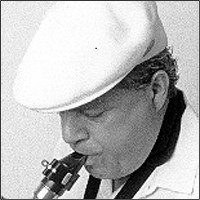Dr. Paul Austerlitz
// Author, Musician & Assistant ProfessorDR. PAUL AUSTERLITZ is an author, musician, and Assistant Professor of Ethnomusicology and Africana Studies at Gettysburg College Sunderman Conservatory in Gettysburg, Pennsylvania. His book “Jazz Consciousness: Music, Race, And Humanity” (2005) is available from Wesleyan University Press, and “Merengue: Dominican Music And Dominican Identity” (1997) is available from Temple University Press. Paul Austerlitz has recorded six CDs featuring original compositions that incorporate influences from the world traditions he researches; “Journey” (2008) is available from Innova Records, “Real People: A Bass Clarinet In Santo Domingo And Detroit” (1999) is available from X Dot 25 Music Productions, “Dominican Dreams, American Dreams” (2003) is available from Engine Records, and recordings with poet Michael S. Harper; “Double Take: Jazz Poetry Conversations” (2004) is available from Innova Records, “Our Book On Trane: The Yaddo Sessions” (2004) is available from Yaddo Records, and his forthcoming album is “The Fret Cycle” (2008).
Websites: www.paulausterlitz.org and www.gettysburg.edu
Photo: Dr. Paul Austerlitz / PaulAusterlitz.org
Interview:
I have long been drawn to the rich constellation of African-derived religious practices, and have regularly attended Lucumí (or Santería), Vodou, and Candomblé ceremonies in which music plays a central role. These experiences have informed my thinking about the transformative power of all music, and the inner nourishment that I have imbibed in these settings has fed my development as an artist, scholar, and individual. I have also been deeply touched by the depth of expression, the spiritual power, of the music of visionaries such as John Coltrane. The concept of consciousness suggests a valuable way to look at musical spirituality. Consciousness implies awareness, sentience, mind-set, and world-view. Musical consciousness is different from other forms of consciousness because musical experience makes us aware, mindful, and sentient in ways that non-musical experience does not. At the same time, musical experience cannot be separated from other experience, so while it issues from a particular backdrop, music can inform, and even influence, other aspects of life; musical consciousness is thus an active agent in culture. Of course, musical consciousness is ineffable: it is impossible to describe it in words. But precisely because it speaks its own language, music can tell stories that otherwise go untold. This ability lies at the heart of musical spirituality.
Excerpt paraphrased from Paul Austerlitz’s “Jazz Consciousness: Music, Race, And Humanity” (2005) available from Wesleyan University Press. © Paul Austerlitz, All Rights Reserved. Used with permission.
“Music can tell stories that otherwise go untold. This ability lies at the heart of musical spirituality.”
– Dr. Paul Austerlitz, author of “Jazz Consciousness: Music, Race, And Humanity”


